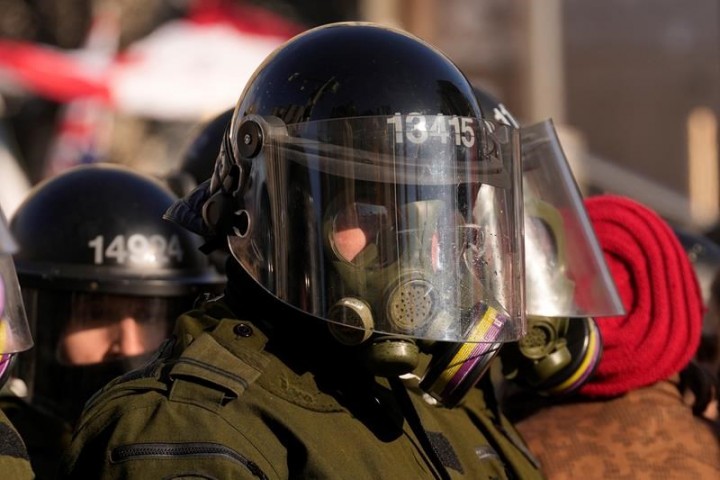OTTAWA — The newly appointed inquiry commissioner set to probe the government’s use of the Emergencies Act is described by colleagues as thoughtful and decisive in his approach to the law.
Justice Paul Rouleau has served as an Ontario Appeal Court judge since 2005, and before then was appointed as a justice of the Superior Court of Ontario in 2002.
Ronald Caza, who worked with Rouleau when he was president of the Association of French-speaking Jurists of Ontario, said Rouleau’s approach to litigation was always practical rather than technical.
“I think he was quite successful, because when you bring a common-sense approach and a practical approach to legal issues, it’s very compelling for a court. It’s very compelling for a judge, that argument, because it sort of drives to the essence of what the litigation is about,” Caza said.
Rouleau is very highly respected in the francophone community for championing precedent-setting cases on linguistic rights, said Caza.
“He was lead counsel on many significant decisions,” such as school boards getting necessary funding to build schools, Caza said.
Rouleau attended the University of Ottawa, receiving his bachelor in administration in 1974 and bachelor of laws in 1977. He received a master of law from York University in 1984.
Rouleau worked for Liberal leader John Turner in 1984, according to reports from Maclean’s from the era.
From there, Rouleau worked as a lawyer at Toronto-based law firms Cassels Brock & Blackwell from 1979 to 1987, and Genest Murray, DesBrisay, Lamek from 1987 to 2000. He went on to partner at the law firm of Heenan Blaikie from 2000 to 2002.
Rouleau has also been appointed as a deputy judge for various Canadian courts, including the Supreme Court of Yukon in 2014, the Nunavut Court of Justice in October 2017 and the Supreme Court of the Northwest Territories in December 2017.
Holly Rasky, government relations director at Kids Help Phone, said she worked at a law firm with Rouleau and was impressed by his ability to take a complicated case and distil it down to its most basic parts to reach a decision.
Rouleau was brilliant, “starting with that twinkle in his eye that you sometimes see in really bright people who are just engaged and interested in everything,” Rasky said.
Rouleau was considered an expert in complex legal areas like labour negotiations in the education sector and public law, said Rasky.
Public law is where the government makes laws that affect societies and determining if a government decision is fair or not.
John Murray, an arbitrator and mediator who previously served as a judge of the Superior Court of Ontario, said he worked with Rouleau at Genest Murray, DesBrisay, Lamek.
“The qualities of being a good lawyer are very much the same as being a good judge: diligence, a decent brain and common sense, and he had all three,” Murray said of Rouleau.
“He was fair-minded and would carefully examine all the issues before reaching conclusions,” said Josie Erzetic, president and CEO of Electrical Safety Authority, in a statement. Erzetic also worked with Rouleau at Genest Murray.
Raj Anand, chair of the Law Commission of Ontario’s board of governors, which Rouleau serves on, said Rouleau is practical, thoughtful and very interested in advancing the law.
Given that he has had 17 years as a judge of the Court of Appeal, Anand said Rouleau has seen many important legal issues that he brings to his role on the board.
“He has lots of experience and lots of ideas, and he doesn’t hesitate to express those ideas,” said Anand.
Shalini Konanur, who also serves on the board, said she thought Rouleau as inquiry commissioner was “a great appointment.”
Though it will be a difficult task given the charged conversation around the invocation of the Emergencies Act, Konanur said she thinks “the way (Rouleau) thinks about competing interests and balancing them is perfectly suited … to considering what happened in Ottawa.”
“I’m sure with his background, his temperament and his ability to hear all sides but be decisive, I think he’ll do an excellent job,” Anand said.
The Ontario Court of Appeals said in a statement Tuesday that Rouleau does not give interviews.
Rouleau must provide a final report on his findings and recommendations on the Emergencies Act in English and French to the federal government by Feb. 20, 2023.
This report by The Canadian Press was first published April 26, 2022.
———
This story was produced with the financial assistance of the Meta and Canadian Press News Fellowship.
Erika Ibrahim, The Canadian Press
